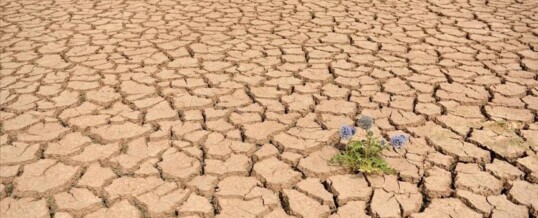
Guest blog by Yohannes Berhe, July 29, 2016
One cannot help a nagging feeling of déjà vu, given the recent appeal for help to feed Ethiopia. For almost 30 years now, the government of Ethiopia has been the darling of donor countries as reflected in the unprecedented annual flow of billions of dollars in development assistance and debt forgiveness. The foreign policy statements of donor countries, Canada included, suggest that they are strongly committed to helping Ethiopia extricate itself from chronic food shortage and crushing poverty.
Instead, what we observe in Ethiopia is an increase in the economic, social and political ills that the development assistance is meant to reduce. The proportion of the population that suffers from chronic hunger and vulnerability to famine continues at alarmingly high levels, while a handful of politically connected individuals prosper beyond measure. Strangely enough, while Ethiopia remains chronically dependent on food aid, its fertile land is being sold cheap to foreigners and privileged local elites for growing roses and food, mainly for export to the Middle East.
While the Ethiopian authorities are the most culpable for this sorry state of affairs, the West is complicit for squandering their taxpayers’ money without the necessary safeguards for accountability and for failing to tie the provision of assistance to democratic reform and better governance. In fact, one can say that Canada’s aid to Ethiopia has been a failed experiment in turning brutal dictators into democrats.
What is even more remarkable about the current famine in Ethiopia is the West’s persistent characterization of the problem as a natural disaster caused by capricious environmental events such as El Niño. Drought may lead to famine, but recurrent famines are caused by the failure of government and communities to manage the food supply and agricultural resources properly. Foreign assistance has not helped.
What makes the situation even more perplexing is the fact that the Ethiopian economy is touted by some donors, including Canada, as the best performing in Africa. Notwithstanding a questionable World Bank estimated GDP growth rate of 9.6%, the poverty headcount ratio (the proportion of the population living less than $1.90 a day) is officially 33.5%—which likely underestimates the actual level of poverty.
In fact, the country is consistently ranked near the bottom of the UN Human Development Index (HDI)–a composite measure of life expectancy, education and per capita income. Which begs the question whether the data used to assess the much-touted ‘progress’ has been misconstrued to promote donor countries’ self-serving political agenda. After all, Ethiopia is also considered a key ally in the war against terrorism.
The celebrated Nobel laureate and economist Amartya Sen has famously said that famines do not occur in countries with democratic accountability. This, he explained, is because democratic governments “have to win elections and face public criticism, and have strong incentive to undertake measures to avert famines and other catastrophes.” All the key aspects of good governance: rule of law, free press, legislative scrutiny, are currently lacking in Ethiopia. Freedom House has consistently ranked Ethiopia as one of the world’s least free countries, giving it a ‘freedom rating’ in 2016 of 6.5 (7 is the worst). In contrast, Zimbabwe, which the West loves to lambaste at every turn for its lack of political freedom, scores a more favourable 5.
As long as aid is delinked from good governance, countries will continue to be ravaged by poverty and political instability. In an ever more interconnected world, social instability can have significant and often unpredictable consequences. With approximately one hundred million people (the second most populous country in Africa) and as a key regional player, it is impossible to underestimate the catastrophic impact civil strife could have in Ethiopia and the surrounding region.
Canada’s Liberal Government has said that it will enact policy based on evidence. It is time, therefore, to assess what has been achieved through the transfer of several hundred millions of taxpayers’ dollars to the Ethiopian government. A cursory glance at the list of Canadian aid-supported projects in Ethiopia over the last 25 years suggests that one of the priorities has been the promotion of good governance: strengthening the parliamentary system, building democratic institutions, strengthening the judiciary, media and the free flow of information, fighting corruption, and free and fair elections. Little or no improvement has been achieved on any of these fronts. For instance, in Ethiopia today a single, hugely unpopular party controlled by a minority ethnic group controls 100% of the seats in parliament. The judiciary lacks independence and courts are known as places where injustice is rendered routinely. The case of the Ethiopian-Canadian Bashir Makhtal, who has been languishing in Ethiopian jail for years after a sham court drama, is one example. Corruption and illicit flows of capital are also rampant. The country’s security forces recently killed more than 400 people, including many children in Oromia, Ethiopia’s largest region.
No measure short of cutting aid and instituting targeted sanctions (such as asset freezes and travel bans) against those responsible for atrocities will compel the Ethiopian regime to change course. Canada and other donors should immediately halt aid to Ethiopia and galvanize a concerted international effort to impose a cost on the Ethiopian regime for its ongoing repression. Spending taxpayers’ money without any measure of accountability and without demanding true political reform is, at the very least, a wasteful endeavour, and at worst, tantamount to encouraging one of the most repressive regimes in Africa.
Yohannes Berhe is a senior analyst with the federal government in Ottawa. The views expressed in this article are those of the author.
